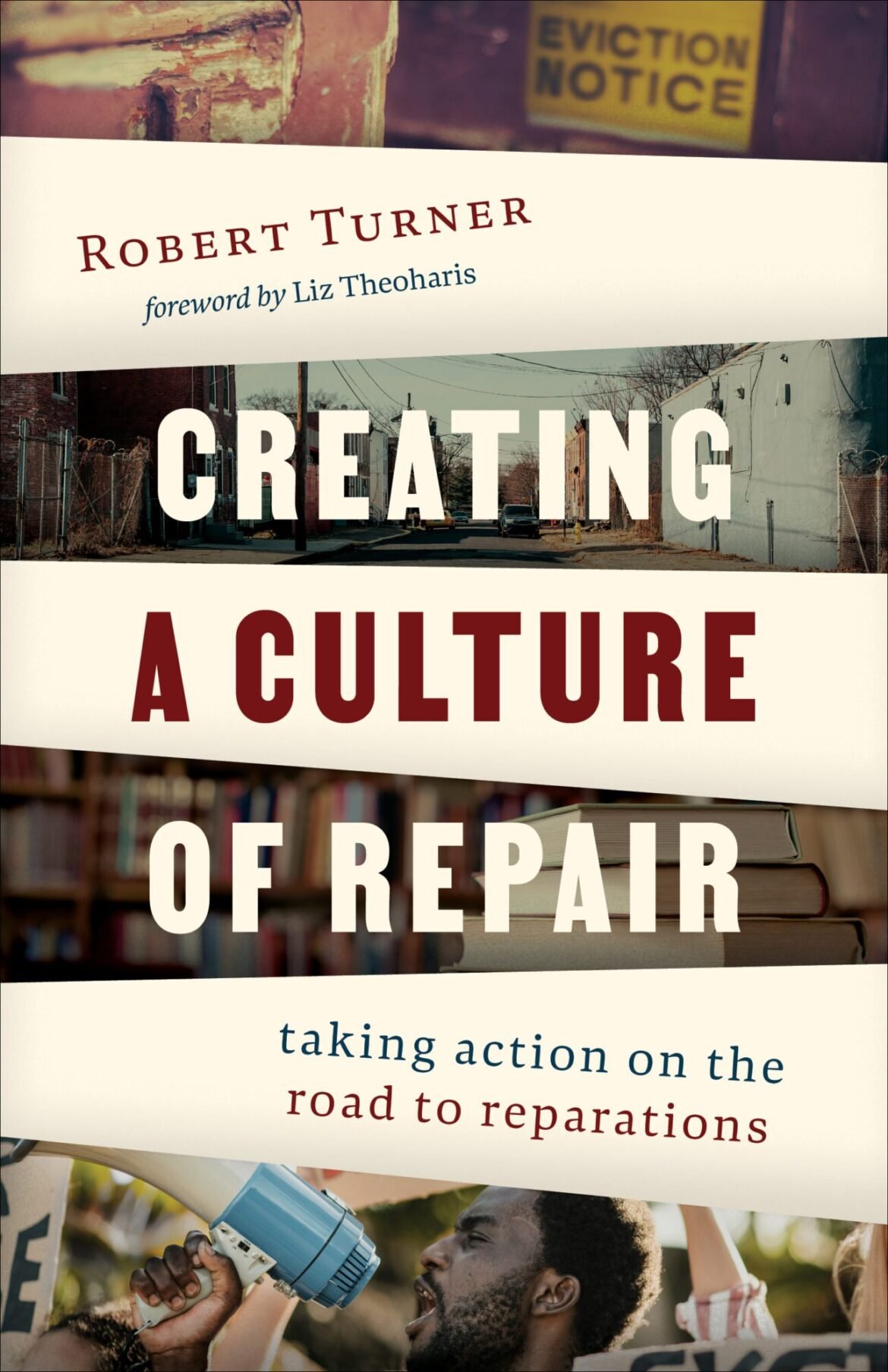Creating a Culture of Repair from WJK is available April 2024
It is possible to move from feeling powerless to repair the harm done to Black Americans toward being empowered to make personal and societal changes.
We are aware of the injustices that Black Americans have suffered over the centuries, and we can clearly see how the inequality remains even after laws and policies have been corrected. When we look at solutions, calculating and implementing financial reparations will require large-scale government action, which must happen but can seem out of reach for the average person. But there is much more that we can do as individuals and as communities.
In Creating a Culture of Repair, Robert Turner provides an accessible guide for individuals and groups wanting to influence significant institutional action while also acting on their own to repair the effects of racial injustice in our communities, churches, and spheres of influence. Dividing reparation opportunities into categories of individual, social, institutional, and spiritual repair, Turner offers the longest list of reparations currently published, with more than one hundred actions readers can begin practicing and advocating for to help balance economic injustice, undo hurtful decisions from decades past, and rally public support for bold and principled legislation.
Creating a Culture of Repair will be released in April of 2024. Available now for preorder.
Robert Turner is pastor of Empowerment Temple AME Church in Baltimore. He previously pastored the historic Vernon African Methodist Episcopal Church in Tulsa, Oklahoma, the only edifice on Greenwood Avenue to survive the 1921 massacre. In college, he was influential in the campaign for the University of Alabama’s Faculty Senate apology for the school’s role in slavery. He is a National African American Reparations Commission (NAARC) commissioner and hosts monthly marches from Baltimore to the White House—40 miles for 40 acres.
Press Inquiries: Natalie Smith, [email protected]
###
Disclaimer: The views and opinions expressed in this article are those of the authors and do not necessarily reflect the official policy or position of Religion News Service or Religion News Foundation.

